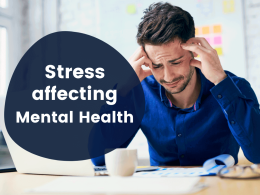Introduction
In today’s fast-paced world, it’s easy to overlook two of the most important aspects of our health: sleep and nutrition. However, in 2025, health experts are emphasizing their importance more than ever. Whether you are trying to improve your energy levels, enhance your mood, or maintain a healthy weight, getting enough sleep and making wise food choices are fundamental to achieving your goals.
In this article, we will explore how optimizing sleep and nutrition can have a profound impact on your overall health in 2025. By understanding the role these two factors play in your well-being, you can make informed choices that will help you feel your best every day.
What is the Relationship Between Sleep and Nutrition?

Sleep and nutrition are closely linked, as both play a vital role in your physical and mental health. Sleep allows your body to repair itself, recharge, and process the day’s information. On the other hand, the right nutrition provides the necessary energy, vitamins, and minerals that support bodily functions, including sleep regulation.
Good sleep hygiene the practices that promote healthy sleep—can improve your metabolism, support your immune system, and enhance cognitive function. Similarly, consuming nutrient-rich foods supports the body’s natural sleep cycles, helping you fall asleep faster and stay asleep longer.
Both of these elements work together to create a healthy, balanced lifestyle, making it easier to maintain a stable weight, improve mood, and optimize your physical performance.
How to Optimize Your Sleep in 2025

1. Stick to a Consistent Sleep Schedule
One of the most effective ways to optimize your sleep is by following a consistent sleep schedule. Going to bed and waking up at the same time every day helps regulate your body’s internal clock, making it easier to fall asleep and wake up refreshed. This consistency also ensures that you get the right amount of restorative sleep each night.
In 2025, with many people working from home or having irregular work hours, maintaining a set sleep schedule can be challenging. However, prioritizing a regular sleep routine is key to improving the quality of your sleep.
2. Create a Relaxing Bedtime Routine
A relaxing bedtime routine can signal to your body that it’s time to wind down. Activities such as reading a book, meditating, or listening to calming music can help reduce stress and promote restful sleep. Avoiding screen time before bed is also crucial, as the blue light emitted by phones, tablets, and computers can interfere with the production of melatonin, the hormone that regulates sleep.
3. Limit Caffeine and Alcohol Intake
Caffeine and alcohol are known to interfere with sleep quality. Caffeine, found in coffee, tea, and energy drinks, can stay in your system for hours and make it harder for you to fall asleep. Alcohol, although it may initially make you feel drowsy, disrupts your sleep cycle and reduces the quality of your rest. To optimize your sleep, it’s best to avoid consuming these substances late in the day.
4. Optimize Your Sleep Environment
Your sleep environment plays a crucial role in your ability to fall asleep and stay asleep. Make sure your bedroom is cool, dark, and quiet. Investing in a comfortable mattress and pillows can also greatly improve sleep quality. Consider using blackout curtains, earplugs, or a white noise machine to create a peaceful sleep environment.
How to Optimize Your Nutrition in 2025

1. Eat a Balanced Diet
A well-balanced diet rich in whole foods is essential for optimal health. In 2025, focus on consuming a variety of nutrient-dense foods such as fruits, vegetables, whole grains, lean proteins, and healthy fats. These foods provide the vitamins, minerals, and antioxidants your body needs to function properly and maintain energy levels throughout the day.
Incorporating a range of colorful fruits and vegetables into your meals is a great way to ensure you’re getting a variety of nutrients. Choose lean sources of protein such as chicken, fish, tofu, or beans, and include healthy fats from sources like avocado, nuts, and olive oil.
2. Stay Hydrated
Proper hydration is essential for both sleep and nutrition. Dehydration can lead to fatigue, headaches, and poor digestion, all of which can affect your sleep. Aim to drink plenty of water throughout the day to stay hydrated and support your body’s natural processes. Herbal teas, such as chamomile or peppermint, can also promote relaxation and aid in digestion before bedtime.
3. Avoid Heavy Meals Before Bed
Eating a large or heavy meal right before bed can make it difficult to fall asleep. Your body works hard to digest food, which can interfere with your ability to relax and sleep soundly. Instead, try having a light snack that includes a combination of carbohydrates and protein, such as a small bowl of yogurt with fruit or a piece of whole-grain toast with almond butter. These foods promote the release of serotonin, a hormone that helps induce sleep.
4. Incorporate Sleep-Boosting Foods
Certain foods are known for their sleep-enhancing properties. For example, foods rich in magnesium, such as spinach, almonds, and bananas, can help relax your muscles and promote better sleep. Tryptophan, an amino acid found in turkey, eggs, and pumpkin seeds, can help your body produce serotonin, a hormone that regulates mood and sleep.
Additionally, chamomile tea and warm milk have been known for their soothing effects and can help prepare your body for sleep.
The Future of Sleep and Nutrition in 2025 and Beyond

Looking ahead, the future of health looks smarter and more personal. In 2025, many people are using sleep trackers and health apps that give daily tips. Some apps even suggest what to eat based on how you slept! Schools and workplaces are also talking more about rest and healthy meals. New foods and drinks are being made to support sleep, focus, and better energy. In the future, people will make more choices that support both body and mind. Sleep and food will not be seen as extras they will be key parts of a happy, balanced life.
Comparative Table: Sleep-Boosting Foods and Their Benefits
| Food | Key Benefit | Why It Helps Sleep |
|---|---|---|
| Bananas | High in magnesium and potassium | Relaxes muscles and promotes calm |
| Almonds | Rich in magnesium and healthy fats | Helps regulate sleep cycles |
| Turkey | Contains tryptophan, an amino acid | Promotes serotonin production for better sleep |
| Cherries | Natural source of melatonin | Regulates sleep patterns |
| Chamomile Tea | Known for its calming properties | Reduces stress and induces sleep |
Conclusion
Optimizing your health through sleep and nutrition is one of the most effective ways to boost your well-being in 2025. By maintaining a consistent sleep routine, eating a balanced diet, staying hydrated, and incorporating sleep-boosting foods, you can improve both your mental and physical health. Remember, health is a journey, and small adjustments to your daily habits can have a big impact on how you feel each day.
Call to Action
Ready to optimize your health in 2025? Start today by prioritizing your sleep and nutrition. Visit our website for tips, meal plans, and resources to help you live your healthiest life.









